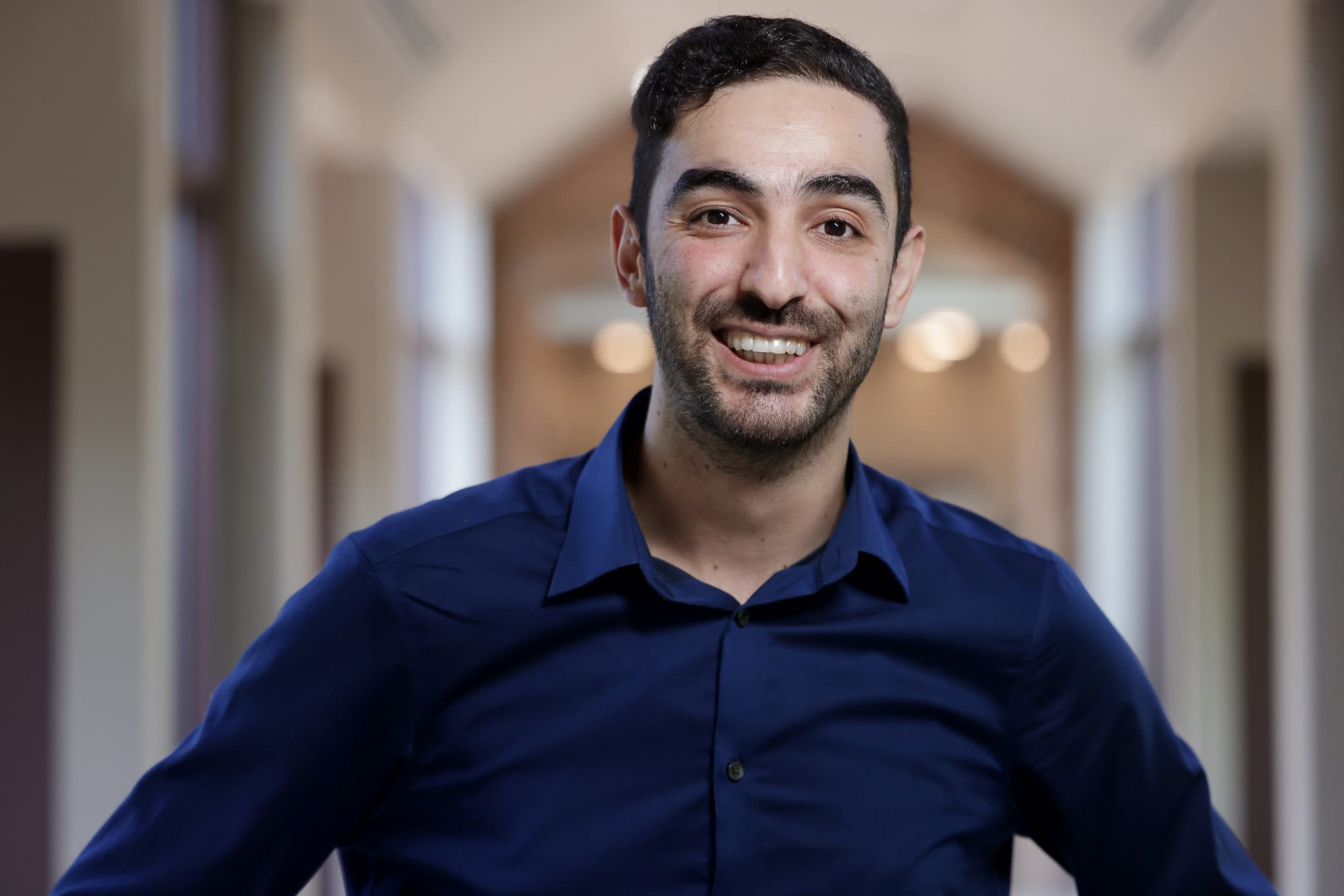
Advancing Nuclear Reactor Control and Digital Twins with Idaho National Laboratory
Majdi Radaideh is supporting Uncertainty Quantification Methods for Digital Twin-based Autonomous Control.

Majdi Radaideh is supporting Uncertainty Quantification Methods for Digital Twin-based Autonomous Control.
Revolutionizing nuclear reactor control systems is the aim of a new venture led by Idaho National Laboratory (INL) researcher Linyu Lin and supported by External Co-Investigator and University of Michigan Department of Nuclear Engineering and Radiological Sciences (NERS) Prof. Majdi Radaideh.
The project’s primary goal is to enhance autonomous control capabilities within nuclear power plants, ensuring optimal operational setpoints while upholding safety standards and resilience against cyber threats. Radaideh’s expertise contributes significantly to assessing and mitigating uncertainties associated with the use of machine-learning models including reinforcement learning to build digital twins for nuclear reactor systems. The digital twins will then be used to enable autonomous control.
The innovative Uncertainty Quantification, or UQ, approach introduced by the project utilizes imprecise probability and probability box methods. This approach addresses a spectrum of uncertainties, ranging from cyber-attacks to errors in machine-learning models and low-quality sensors. Notably, it incorporates data quality assessment during information exchange, making it a comprehensive and robust methodology for digital twin-based autonomous control systems.
Autonomous control systems in nuclear power plants are crucial in optimizing reactor states while adhering to safety protocols and resisting cyber threats. The integration of digital twins enables the prediction of transient state variables, allowing for proactive control actions. Radaideh’s involvement is crucial in evaluating and enhancing the effectiveness of intelligent control algorithms, such as reinforcement learning, in the face of uncertainties introduced by simulations, data, and machine learning surrogate models.
The project introduces three key innovations in uncertainty quantification. Firstly, it integrates training errors of virtual models with uncertainties arising from various operating conditions and cyber-attacks. Secondly, it employs probability box and interval analysis to account for imprecisions in uncertainty characterizations, departing from traditional methods. Thirdly, the project evaluates the effectiveness of intelligent control algorithms in the presence of uncertainties introduced by simulations, data, and machine learning surrogate models.
“This project provides a unique opportunity to assess machine learning models robustness in building real-time digital twins,” said Radaideh. “With INL, we are going to address two key challenges in model calibration in real-time and build an interpretable physics-based reinforcement learning control policy. “
“The deployment of advanced nuclear energy systems is more likely if we modernize our approach to design and operations,” said NERS Chair Todd Allen. “NERS is proud to be part of this effort and thank Professor Radaideh for his national leadership.”
The proposed UQ approach, coupled with the expertise of the multidisciplinary team, promises to address critical challenges in verification, validation, and uncertainty quantification for the safe and confident use of digital twin technologies in advanced reactors.
“This project is funded by INL’s Laboratory Directed Research and Development (LDRD) program under the initiative of Nuclear Reactor Sustainment and Expanded Deployment”, said Linyu. “The project is to ensure acceptability and address technical and regulatory challenges of digital twin technologies that directly address the fission battery attributes. Radaideh and his team at NERS provide unique contributions in creating a robust UQ methodology that will illustrate the potential and limitations of intelligent control based on artificial intelligence and machine learning compared to classical control methods to be used for nuclear reactors.”
The project includes collaborations with INL researchers, including Linyu Lin (Principal Investigator), John Merickel, Shannon Eggers, Jeren Browning, Han Bao, Terry Morton, Daniel Mikkelson, and Lise Charlot. External Co-investigator Nam Dinh from North Carolina State University is also an integral part of the project effort.
“I would like to thank, in no particular order, Simon Pimblott, Derek Gaston, and Erin Searcy, for their outstanding support to bring this collaboration into reality in a very unique situation. I look forward to continuing to build our relationship with INL,” said Radaideh.
About Idaho National Laboratory
Battelle Energy Alliance manages INL for the U.S. Department of Energy’s Office of Nuclear Energy. INL is the nation’s center for nuclear energy research and development, celebrating 75 years of scientific innovations in 2024. The laboratory performs research in each of DOE’s strategic goal areas: energy, national security, science and the environment. For more information, visit www.inl.gov. Follow us on social media: Facebook, Instagram, LinkedIn and X.